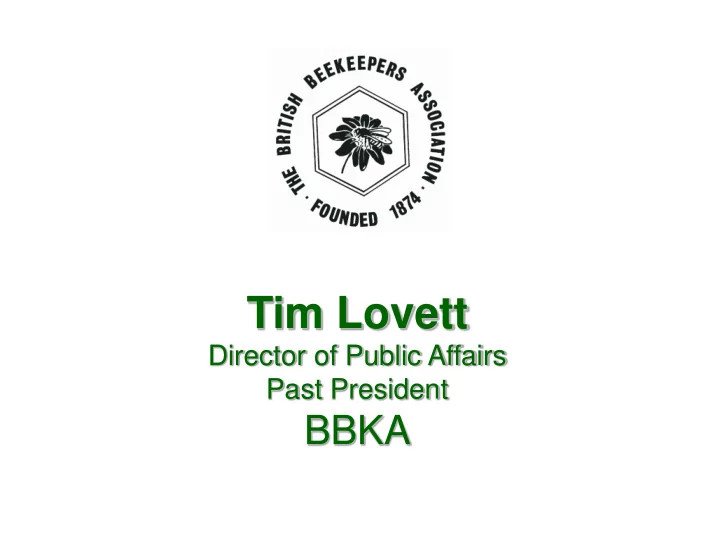

Tim Lovett Director of Public Affairs Past President BBKA
The BBKA National Association of beekeepers made up by 64 Area (county) Associations comprising 220 Local Divisions or Branches 20,500 members (+ 8,000 in last 30 months) Educational Charity – No: 212025 Governed by an Executive Committee of 13 Trustees reporting to its Annual Delegate Meeting Objects: i) to promote and further the craft of beekeeping ii) to advance the education of the public in the importance of bees in the environment
Threats to honey bees Diseases: Foul Brood (American and European - notifiable) New exotics (Small Hive Beetle, Tropilaelaps – notifiable) Varroa Viruses Microsporidians – Nosema apis and ceranae Colony Collapse Disorder - CCD? Weather Habitat – Forage availability Bad beekeeping Regulatory effects – veterinary medicines regulations Pesticides
The BBKA & Pesticides BBKA approach is pragmatic Necessary to meet food requirements Major contribution to productivity Safety depends on correct use & stewardship Risk based rather than hazard based
BBKA Engagement Historically damage to colonies a problem BBKA engaged with agro-chem companies reducing losses notably (1990s onwards) Input to UK pesticides guide – good practice Emphasis on best practice & stewardship Dialogue with companies to be properly informed
BBKA objectives Neonicotinoids appear to be a step forward Conflicting / insufficient data on possible sub-lethal effects BBKA calls urgently for more research Regulatory environment must be updated also Concerns: i) immediate ban may slow research ii) older / dirtier products may fill the gap Appropriate action must be based on evidence
Recommend
More recommend